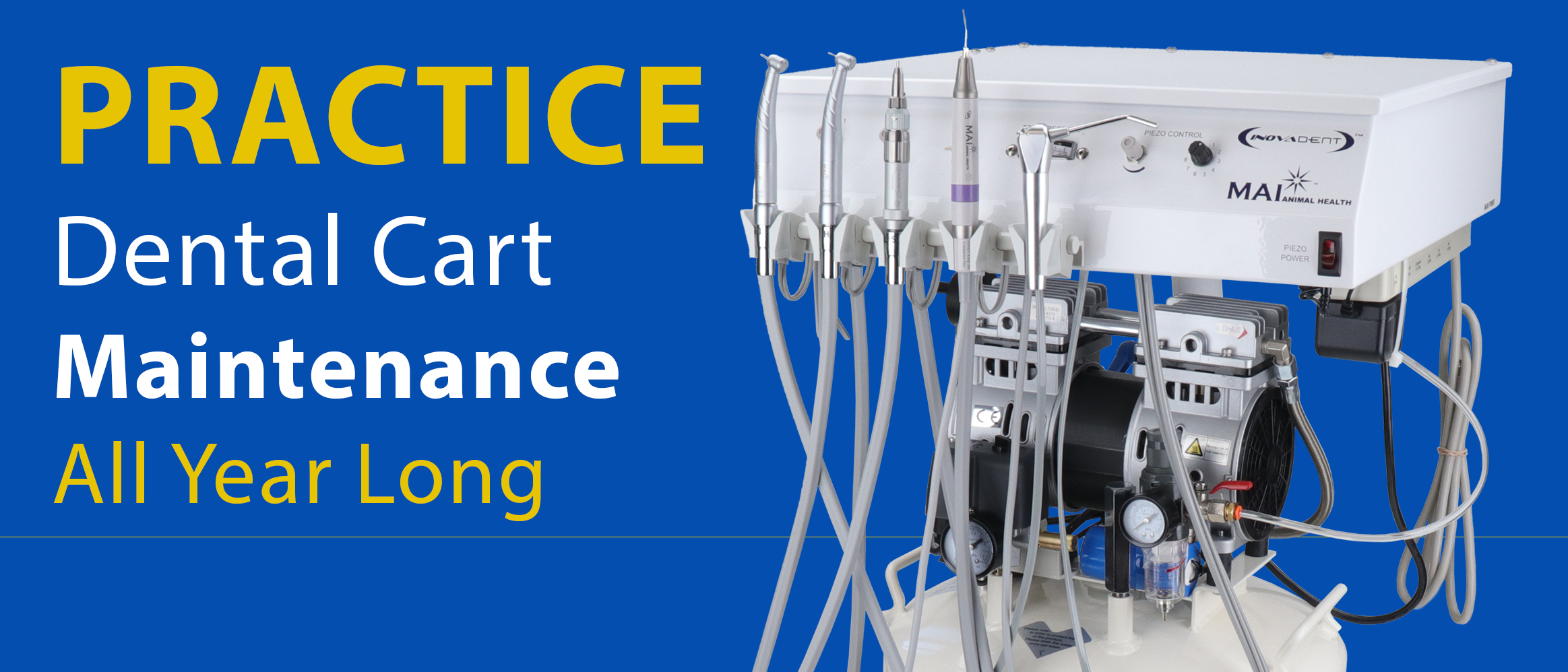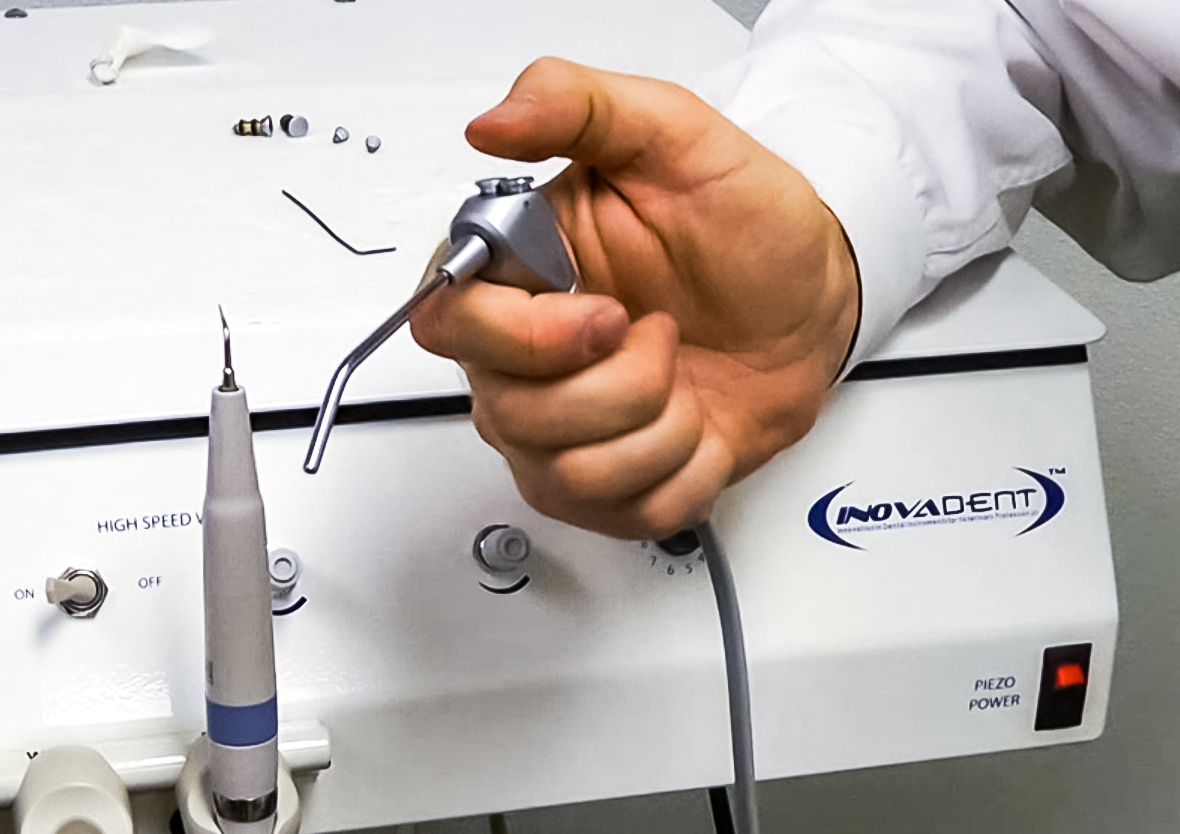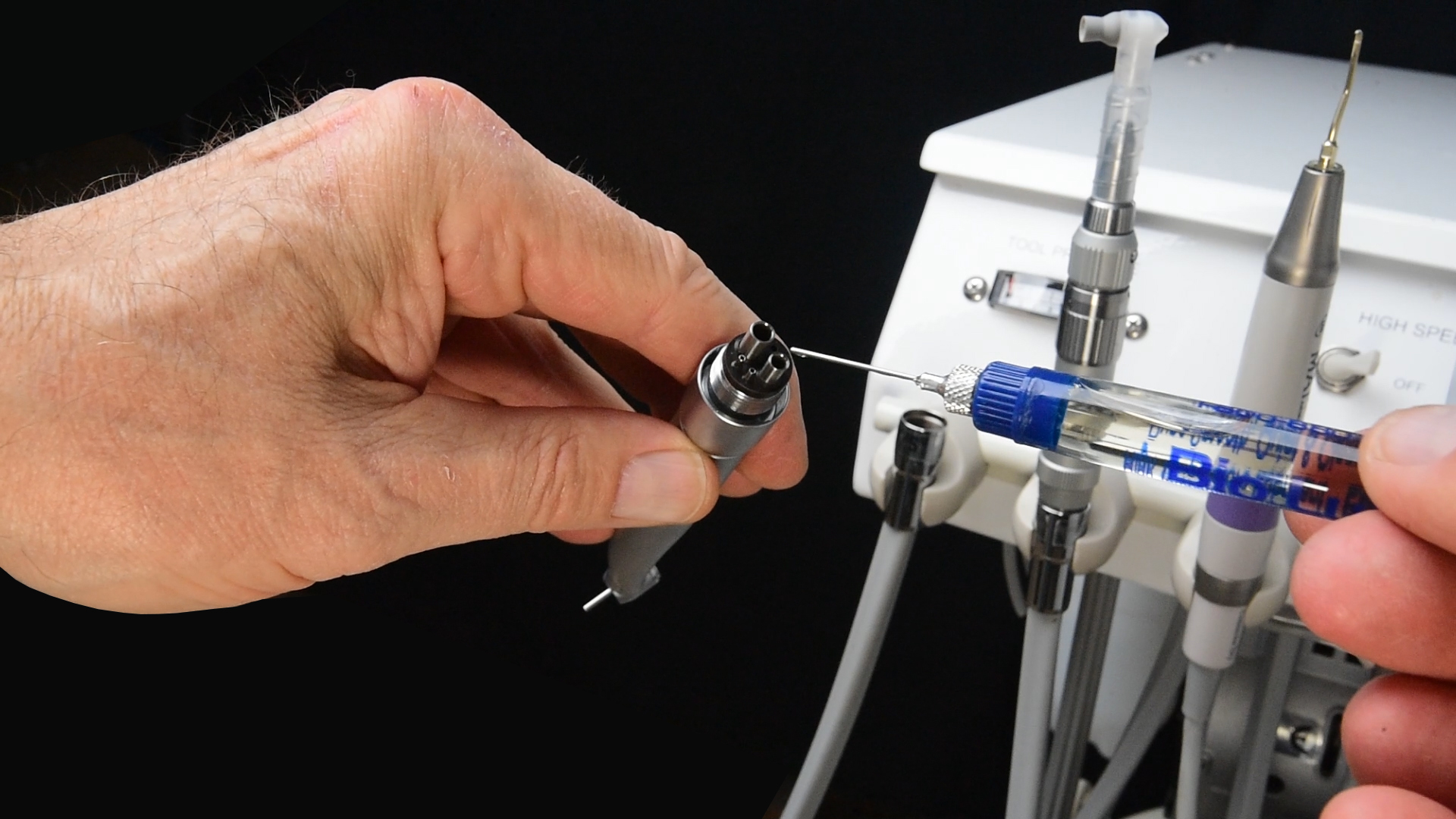We use cookies to make your experience better. To comply with the new e-Privacy directive, we need to ask for your consent to set the cookies. Learn more.
Practice Dental Cart Maintenance All Year Long

Dental cart maintenance isn’t just a once-a-year thing—it’s something you and your clinic team should be doing every day. That way, your dental unit should run smoothly, because you're performing daily maintenance as you’re looking it over. Think of it as daily TLC for your equipment.
Use these eight tips to keep your dental cart in tip-top shape.
1. Take Care of Your Handpieces
Begin with handpieces first; they need regular attention.
Ensure you lubricate handpieces properly—about four to five drops in the smaller hole of the high speed handpiece, ideally after every use or at least once a day. And don’t forget to clean them. If you use an autoclave, follow the manufacturer’s guidelines.
Also, keep spare parts on hand—like turbines, back caps, or even an old handpiece as a backup. If something breaks mid-procedure, you can swap it out quickly without slowing down.
The directions that came with your dental cart include additional care tips, which you can also access on the manufacturer's website.
Scaler care is straightforward, but you still need to watch the cords and connections. Ensure they’re dry and check for corrosion on the pins. Have a spare ready if a cord or handpiece goes bad. Also, check your tips—if they’re worn, the scaler might stop working properly. Replacing them regularly saves you a lot of headaches.
2. Keep the Air / Water Syringe Clean
Air / Water Syringe buttons tend to get gunky from paste splatter and paste on your gloves. A simple trick is to use a zip-lock bag as a cover to keep debris out.
If buttons start sticking, an easy replacement kit is available. Swap them out as part of your regular maintenance or keep spares handy.


3. Water Bottles and Solutions
When it comes to water bottles, always use distilled water—nothing else. You can also use a peroxide-based solution for scaling and cleaning; it’s excellent for treating periodontal issues and keeping the lines clean.
Your water bottle gauge should read between 15 and 25 pounds per square inch (psi). If it rises to 40 psi, your regulator or gauge may be bad. Just tap the gauge a bit to move it back into position. If it doesn’t move and is still at 40, 50 or even 60 psi, you probably need a new regulator gauge.
Remember to flush the system with distilled water at the end of the day and store the bottles dry. Moisture in the lines is a no-go!
4. Don’t Forget the Compressor
Whether your compressor is lubricated or oil-less, the basics are the same: check and replace filters annually, ensure the oil levels (for lubricated compressors) are between minimum and maximum levels, and keep the unit clean.
Call tech support if you notice pressure issues—they will help you figure it out.


5. Stock Up on Consumables
Ensure you have plenty of prophy paste, prophy angles, Bio Lube® and burs in stock. And speaking of burs, avoid reusing them—it’s not just about infection control, but also efficiency. Worn-out burs put extra strain on your handpieces, and replacing a handpiece is much more expensive than using a fresh bur.
6. Consider Upgrades
Quick-connect water bottle fittings are a great upgrade if you’re looking for convenience. They make attaching and detaching bottles much easier, and they’re a nice treat for yourself (or your team).
7. Train Your Entire Team
Ensure everyone in the clinic knows how to do essential maintenance. Don’t let it all fall on one person. When everyone’s on the same page, you avoid those “oops, no one did it” moments that can cause problems down the line.
8. Keep Tech Support on Speed Dial
Tech support is your friend. Don't hesitate to call them if you’re dealing with a pressure issue, a leaky valve or need help replacing a part. They’re there to walk you through any issue so you can avoid unnecessary downtime.
It’s better to solve a minor issue now than let it grow into a big one later. Ultimately, these daily habits will keep your equipment in great shape for years.












